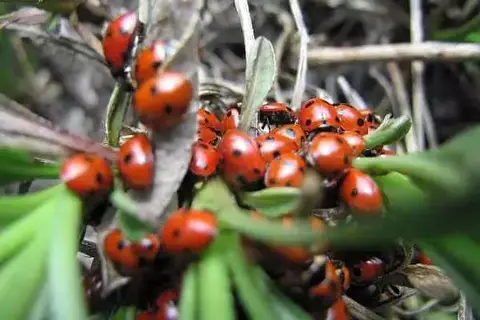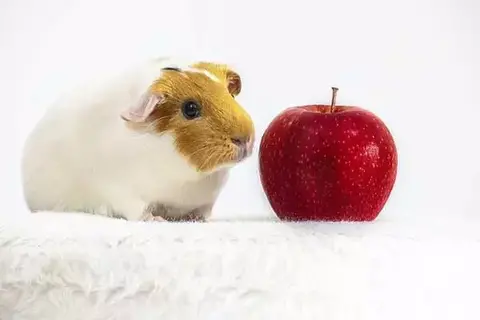Puppy Health Basics
Karla MillerGive your puppy a healthy start by covering these dog basics.
 Photo by Almada Studio on pexels
Photo by Almada Studio on pexelsFirst Veterinarian Visit
The first check-up is crucial to a lifetime of good health habits and maintenance.
Why: Veterinarians spot many health problems right away. If you purchase your puppy from a breeder, you should be able to return her if a serious health problem exists. If you’re already attached to the pup, you can address problems immediately. This first visit also is your opportunity to learn everything you can about proper puppy care.
When: Take your new puppy to the veterinarian within the first 48 hours of acquiring her, preferably before you take her home for the first time.
Remember: Don’t hesitate to ask specific questions about anything from nutrition to grooming to training to the idiosyncrasies of your dog’s breed.
The Veterinarian View: “It’s important to allow enough time for the veterinarian to go over all the issues of having a new puppy,” says Kate Schulze, DVM, “In addition to the basics of puppy care, your veterinarian should discuss behavior training. The No. 1 reason for euthanization is behavior problems, so you need to get off on the right foot in the first eight to 12 weeks so that you can have a long and happy 14 to 16 years with your pet.”
Nutrition
Proper nutrition is essential for your fast-growing pup’s healthy development.
Why: Different breeds have slightly different nutritional requirements, but puppies generally need three times the calories of an adult dog of equal weight. Pups also have higher calcium, energy, and protein requirements. Inadequate portions and diets compromise growth and development.
When: Puppies must eat more frequently than adults because their higher metabolism digests food quickly and smaller stomach holds less. Feed new puppies four times a day and gradually decrease the number to two per day by the end of the first year.
Remember: Avoid overfeeding. Diets too high in calories can compromise bone growth in larger breeds and lead to orthopedic problems.
The Veterinarian View: “There isn’t one food that is right for every single pet,” says Eric Eisen, DVM. “Some dogs do well on super-premium foods; others won’t touch them. And, when switching foods, do so gradually over 10 to 14 days by replacing increasingly larger amounts of the old food with new food.”
Spay-Neuter
Take your puppy to be spayed or neutered in the first year.
Why: Thousands of unwanted puppies are born each day in the United States. Most will face euthanization due to a lack of adoptive homes. By spaying or neutering your pet, you are helping to minimize the homeless dog population.
When: The American Veterinary Medical Association endorses spaying/neutering for dogs as early as 8 weeks old. Many veterinarians prefer to wait until 4 to 6 months—when vaccinations are completed and the puppy is stronger and better able to withstand the anesthesia.
Remember: Sterilization offers behavioral advantages. Females’ risk of pregnancy is spared, males’ aggressive behavior tempered, the urge to breed eliminated. Males and females will have a lesser tendency to wander when the female is in season.
The Veterinarian View: “Spaying or neutering has many long-term health benefits,” Dr. Eisen says. “The chance of mammary cancer—one of the top cancers in unspayed females is almost completely eliminated. Uterine infections, uterine cancer, and ovarian cancer are also virtually eliminated. In males, [risk of] prostate problems, rectal tumors and testicular cancers [is] eliminated, and in dogs with existing rectal tumors, neutering often is the only necessary cure.”
Vaccinations
Most veterinarians agree vaccinations are a necessary element of preventive health care.
Why: Puppies are born with weak immune systems and need extra protection from serious and often fatal diseases and conditions.
When: Veterinarians’ vaccination schedules vary, but most recommend a program administered several times in the first four to six months (beginning at about 6 weeks of age) to protect against five to seven diseases and conditions. The first rabies vaccine is usually given at 6 months and repeated every one to two years, depending on state law.
Remember: Controversy about vaccines has developed because of negative reactions in some dogs — especially those in poor health. However, most veterinarians agree the benefits of vaccination far outweigh the risks. Talk to yours if you are concerned about over-vaccination.
Pest Prevention
Formulate a pest control regimen before your puppy comes in contact with a single flea or tick. Heartworms, which can be fatal, also require preventive measures.
Why: Puppies are susceptible to flea- and tick-borne infection and disease because their immune systems aren’t fully mature. Left unchecked, fleas can cause tapeworm and/or severe allergic reactions. Ticks can transmit Lyme disease, tick paralysis, anemia, and several other serious diseases. Heartworms wind themselves into a dog’s heart and may cause irreparable damage or death. However, preventive care is usually all your pup needs to be parasite-free.
When: Look for fleas and ticks during daily grooming sessions. Spot-on adulticides can be administered anywhere between 7 and 10 weeks. Check the label of the product you are using, or check with your veterinarian. Also, begin heartworm prevention—pills or chewables—at 8 weeks.
Remember: New insect growth regulators and spot-on adulticides are the cutting edges of pet pest control. Following the directions on the packaging yields a virtually pest-free existence for most dogs.
The Veterinarian View: “When we talk to new puppy owners, we always talk about pest control and strongly recommend that as soon as a pup turns 8 weeks old she be started on a year-round regimen of an insect growth regulator and heartworm prevention,” says Jay Empel, DVM.
What You Need to Know About Puppy Health Basics
 Photo by Julissa Helmuth on pexels
Photo by Julissa Helmuth on pexelsIf you’re new to owning a dog, you may have many questions about puppy health basics. This article will provide you with the answers to your most common questions about puppy health. Learn the signs and symptoms that may indicate an underlying issue, such as pain, discomfort, or inhibited behavior. If you notice that your puppy’s coat has become overly matted, you should seek veterinary advice immediately. You’ll also want to know about the right foods for your puppy’s age and breed.
Vaccinations are crucial for your puppy’s health. Some vaccines may cause allergic reactions, but most veterinarians agree that the benefits of vaccination outweigh any risks. If you’re concerned about over-vaccination, talk to your veterinarian about other options. For instance, if you live in an area with fleas and ticks, you’ll want to get your puppy vaccinated against those pests. You should also check your puppy’s diet for heartworms, which can be fatal.
Puppies have unique health needs and require a more specialized diet than adult dogs. To prevent excessive weight gain and support their digestive systems, puppies should eat a food that contains extra protein, fat, calcium, and phosphorus. For optimal brain development, make sure to choose a puppy food that contains specific omega 3s. A healthy brain is important for a puppy, so be sure to consult with a vet before making any changes to their diet.
It’s important to exercise your puppy to prevent obesity. Regular exercise helps prevent excessive weight gain and promotes mobility. It also helps the digestive system. It also has mental benefits, including minimizing frustration, anxiety, and destructive behavior. Exercising with your pup will help your pup sleep better and develop a stronger bond with its owner. In addition, it will help you bond with your pet. This will keep your dog healthy and happy.
Vaccinations are another vital part of puppy health basics. They can help prevent certain diseases, improve digestion, and prevent excess weight. Vaccinations are also important for your puppy’s overall health. If you are considering adopting a puppy, make sure it’s the right fit for your lifestyle. If you’re new to owning a dog, you’ll need to learn about the basics of dog care and how to raise it. Once you’re ready, you’ll be glad you did.
There are many types of dog food available, so it’s important to choose one that’s right for your puppy’s needs. There’s a lot of variety in the market today, and you’ll find that you’ll find something that suits your dog’s lifestyle. The only question is: which one will your pup prefer? Fortunately, there are several options for you. If you’re new to owning a pet, make sure you’ve researched all the information about its nutritional requirements.
Vaccinations are essential for your puppy’s overall health. Vaccinations help your dog fight disease and keep it from getting overweight. Not only do vaccinations protect your dog’s body from disease, but they’re also great for the relationship between you and your new family member. If you’re unsure about the details of puppy health, consult a veterinarian. If you’re new to owning a dog, there are many things to consider.
Vaccinations are vital for your dog’s well-being. These are necessary to protect your puppy from various diseases and parasites. Besides vaccines, your puppy should also be spayed or neutered, depending on the breed and age of your dog. Your veterinarian can recommend the best puppy food for your pet. You’ll also need to learn how to recognize the signs and symptoms of illness in your pup. Ultimately, the most important factor is how much you can spend on feeding your puppy.
Puppy health basics include proper diet and exercise. Physical activity helps the body stay fit and prevents excess weight. Moreover, exercise can improve a puppy’s mental health. It can prevent destructive behaviors and minimize frustration. It will also help you develop a stronger bond with your dog. It is important to ensure that your puppy receives the proper nutrition. This article focuses on the importance of dietary supplements for puppies. A healthy diet includes vitamins, minerals, and fatty acids.
- Wildlife10 Interesting Facts About The European Lynx

- InsectsLadybug’S Nest And Other Ladybug FactsBy Lucas Torres

- Wildlife20 Interesting Facts About SnakesBy Evelyn Star

- Birds50 Interesting Facts About TitsBy Camilo Walker

- Dogs15 Amazing Facts About Siberian HuskyBy Charlotte Green

- CatsWhy Cat Food Is Bad For DogsBy Evelyn Star

- RodentsHow Often Should Guinea Pigs Eat?By Nolan Foster

- RodentsHow Often To Clean Guinea Pig Cage?By Noah Young

- BirdsFacts About Woodpeckers PeckingBy Amelia B

- Dogs12 Dog Movies That Will Have You In TearsBy Lucas Torres
